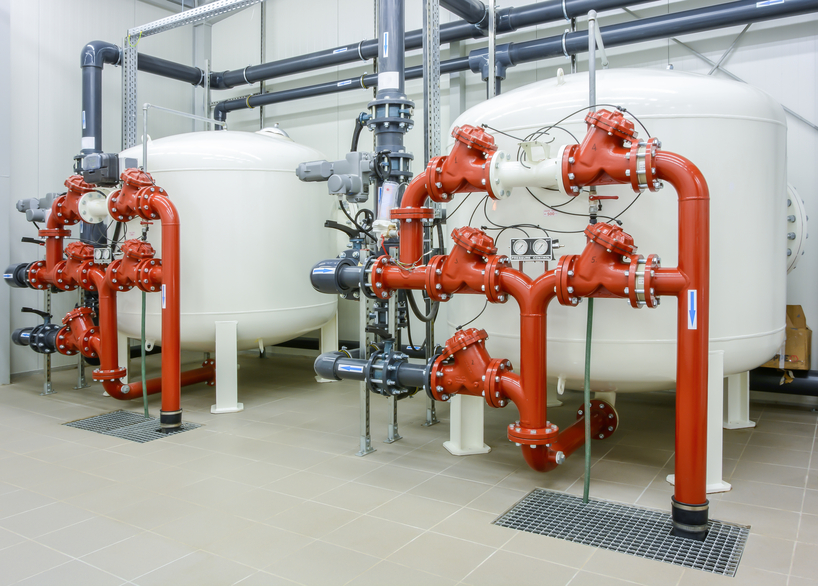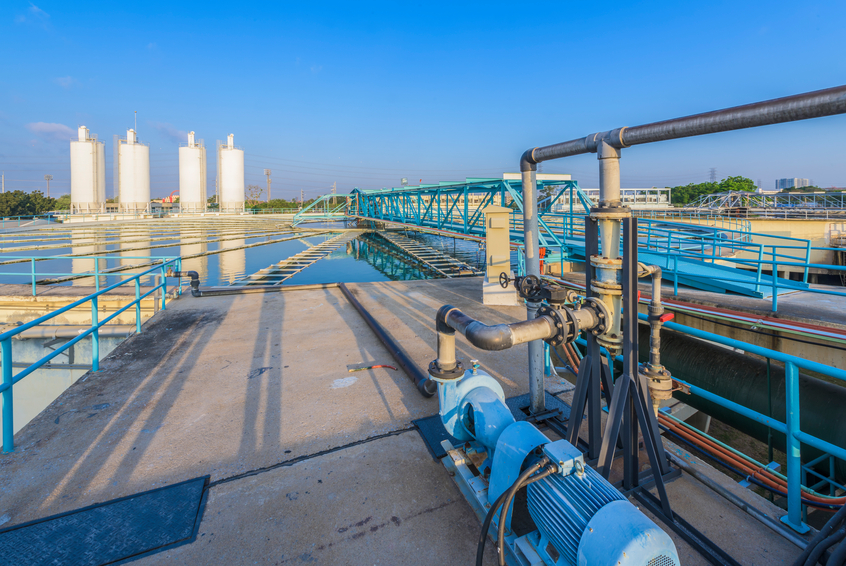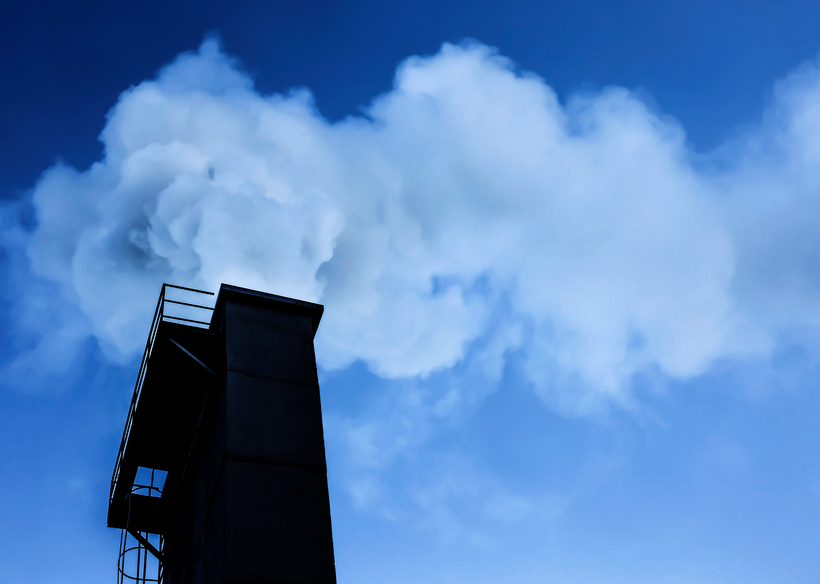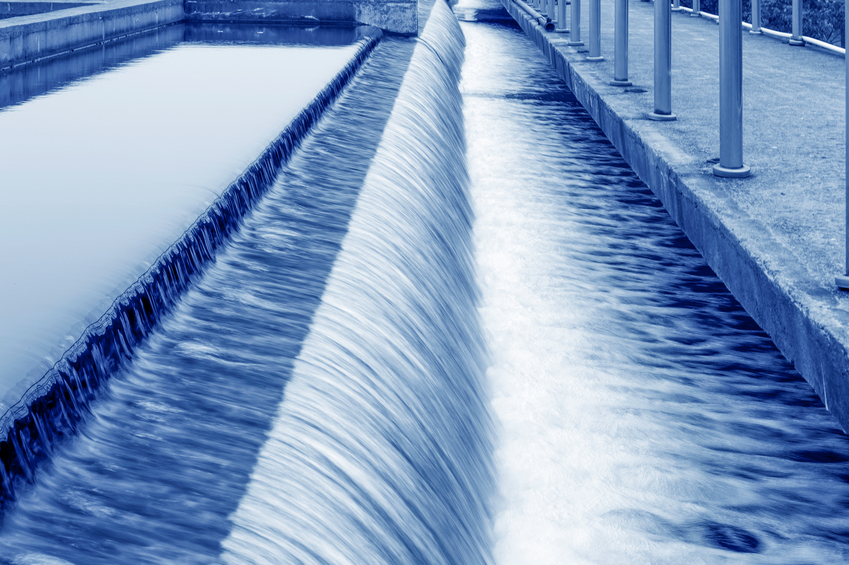New York Chemical and Ethics 18 PDH Discount Package 2
Courses in this Package
Reactor Water Chemistry (H03-001)
Principles of Water Treatment (H03-002)
Disinfection with Peroxone (H02-010)
Building Field Capabilities to Respond to Drinking Water Contamination (H03-009)
Ozone Depleting Substances (ODS) Destruction in the US & Abroad (C04-059)
Ozone Treatment for Cooling Towers (M02-002)
Ethical Issue: Deciding if Something is a Gift or a Bribe (LE1-007)

This online engineering PDH course describes the chemical measures taken to retard the corrosion often found in water systems. It also addresses the consequences of radioactivity on facility cooling water systems.
Radiation synthesis is a process that takes place in the reactor coolant system. This phenomenon is limited to the reactor coolant system because of the high flux (radiation) levels that exist in the core region and further complicate chemistry control of the reactor plant.
This 3 PDH online course is applicable to chemical engineers, design and construction personnel, technical staff and facility operators who are interested in gaining a better understanding of the reactor water chemistry.
This PE continuing education course is intended to provide you with the following specific knowledge and skills:
- Understanding water chemistry parameters
- Understanding the effects of radiation on water chemistry
In this professional engineering CEU course, you need to review Module 3, "Reactor Water Chemistry" of the Department of Energy Publication DOE-HDBK-1015/1-93, "Chemistry".
Upon successful completion of the quiz, print your Certificate of Completion instantly. (Note: if you are paying by check or money order, you will be able to print it after we receive your payment.) For your convenience, we will also email it to you. Please note that you can log in to your account at any time to access and print your Certificate of Completion.

This online engineering PDH course addresses the principles of ion exchange in the context of water purity. It also discusses typical water treatment methods and the basis for these methods.
Water treatment is necessary to remove the impurities that are contained in water as found in nature. Control or elimination of these impurities is necessary to combat corrosion, scale formation, and fouling of heat transfer surfaces throughout facility support systems.
This 3 PDH online course is applicable to chemical and environmental engineers, design and construction personnel, technical staff and facility operators who are interested in gaining a better understanding of the principles of water treatment.
This PE continuing education course is intended to provide you with the following specific knowledge and skills:
- Water treatment processes
- Dissolved gases
- Suspended solids
- pH control
- Water purity
In this professional engineering CEU course, you need to review Module 4, "Principles of Water Treatment" of the Department of Energy Publication DOE-HDBK-1015/1-93, "Chemistry".
Upon successful completion of the quiz, print your Certificate of Completion instantly. (Note: if you are paying by check or money order, you will be able to print it after we receive your payment.) For your convenience, we will also email it to you. Please note that you can log in to your account at any time to access and print your Certificate of Completion.

This online engineering PDH course provides guidance on the use of this rapid, strongly oxidizing process.
Addition of hydrogen peroxide to ozonated water increases the rate of ozone decomposition and generates hydroxyl free radicals in what is known as the peroxone advanced oxidation process.
This 2 PDH online course is intended for civil, environmental, and chemical engineers who are interested in gaining knowledge about the use of the ozone/hydrogen peroxide combination known as peroxone for disinfection and oxidation. However, this course could appeal to engineers of other disciplines as well.
This PE continuing education course is intended to provide you with the following specific knowledge and skills:
- Understanding the chemistry of the peroxone disinfection/oxidation process
- Learning the similarities and differences between the molecular ozone and peroxone processes
- Familiarizing with general guidelines for the application of the peroxone process
- Understanding the advantages and disadvantages of peroxone use in comparison with other disinfection/oxidation processes
In this professional engineering CEU course, you need to review Chapter 7 titled, "Peroxone (Ozone/Hydrogen Peroxide)", which is part of the EPA Guidance Manual, "Alternative Disinfectants and Oxidants".
Upon successful completion of the quiz, print your Certificate of Completion instantly. (Note: if you are paying by check or money order, you will be able to print it after we receive your payment.) For your convenience, we will also email it to you. Please note that you can log in to your account at any time to access and print your Certificate of Completion.

This online engineering PDH course provides guidance on building field capabilities in order to respond to the contamination of drinking water. The course also provides planning and implementation guidance, templates, customizable report forms, and other documentation for Sampling and Analysis (S&A) activities.
When performed in response to possible or credible drinking water contamination, the goal of Sampling and Analysis (S&A) is to confirm or rule out contamination through field and laboratory testing. It is one of the earliest utility-led activities initiated when the utility has activated its drinking water contamination response plan and continues throughout remediation and recovery if contamination is confirmed.
This 3 PDH online course is intended for chemical and environmental engineers as well as others who are interested in learning more about building field capabilities in order to respond to the contamination of drinking water.
This PE continuing education course is intended to provide you with the following specific knowledge and skills:
- Familiarizing with planning and documentation for visual site hazard assessment, sample collection, and sample packaging and shipping
- Familiarizing with planning and documentation for site safety screening, rapid field testing, and hazardous materials packaging and shipping
- Understanding the staffing requirements to perform basic and advanced field activities
- Taking into consideration field response health and safety
- Familiarizing with quality assurance and quality control
- Understanding emergency response procedures
- Familiarizing with the considerations for preparation, placement, and contents of emergency response sampling and analysis kits
Upon successful completion of the quiz, print your Certificate of Completion instantly. (Note: if you are paying by check or money order, you will be able to print it after we receive your payment.) For your convenience, we will also email it to you. Please note that you can log in to your account at any time to access and print your Certificate of Completion.

This online engineering PDH course discusses the sources of ozone depleting substances (ODS) in the United States and abroad and defines the best practices for the safe, environmentally sound collection, recovery, transport, and destruction of these substances. In addition, this course explains the challenges associated with the safe destruction of ODS and assesses the costs for the ODS waste management process.
The Montreal Protocol on Substances that Deplete the Ozone Layer (Montreal Protocol), finalized in 1987, is a global agreement to protect the stratospheric ozone layer by phasing out the production and consumption of ODS.
While the global ODS phaseout is underway, a large amount of ODS is in equipment and products such as refrigerators and air conditioners (as refrigerant and foam blowing agent), foam contained in buildings, and fire protection systems and fire extinguishers, as well as in stockpiles held by countries and industrial and commercial users. Together these sources are referred to as ODS banks.
This 4 PDH online course is intended for environmental, sustainability, industrial, and mechanical engineers, as well as others interested in learning about the best practices for destruction of ODS.
This PE continuing education course is intended to provide you with the following specific knowledge and skills:
- Familiarizing with the sources of ODS
- Learning about the best management practices regarding the process of ODS destruction
- Familiarizing with ODS destruction technologies and facilities in the U.S. and worldwide
- Gaining perspective and metrics on the international efforts to destroy ODS
- Understanding the financial considerations of ODS recovery, transportation, and destruction costs
Upon successful completion of the quiz, print your Certificate of Completion instantly. (Note: if you are paying by check or money order, you will be able to print it after we receive your payment.) For your convenience, we will also email it to you. Please note that you can log in to your account at any time to access and print your Certificate of Completion.

This online engineering PDH course describes the basics about ozone treatment of cooling towers as a "new technology". Cost benefits of using ozone in treatment of cooling tower water, application considerations, maintenance issues, utility initiatives, performance of cooling tower and laboratory versus case study perspectives are discussed.
The form of oxygen known as ozone has been recognized for nearly a century for its powerful ability to disinfect water. Cooling tower water must be treated to limit the growth of mineral and microbial deposits that can reduce the heat transfer efficiency of the cooling tower. The use of ozone to treat water in cooling towers is a relatively new practice that is increasing in popularity, and it has good potential for use in commercial building systems.
This 2 PDH online course is applicable to mechanical engineers, design and construction personnel, technical staff and facility personnel who are interested in gaining a better understanding of ozone treatment for cooling towers.
This PE continuing education course is intended to provide you with the following specific knowledge and skills:
- Ozone treatment of cooling tower waters
- Cost benefits of using ozone water treatment
- Performance of cooling towers with ozone water treatment
- Maintenance considerations when using ozone water treatment
- Manufacturers and suppliers of ozone generating equipment
- Ozone equipment selections considerations
In this professional engineering CEU course, you need to review the material contained in Ozone Treatment for cooling Tower, DOE/DOD/SERDP.
Upon successful completion of the quiz, print your Certificate of Completion instantly. (Note: if you are paying by check or money order, you will be able to print it after we receive your payment.) For your convenience, we will also email it to you. Please note that you can log in to your account at any time to access and print your Certificate of Completion.

This online engineering PDH course will establish, through the presentation of many examples, the principles of distinguishing between a gift and a bribe.
The federal government has formulated detailed rules covering gifts given to executive-branch employees in many situations. The rules are published in the Code of Federal Regulations (CFR) and are illustrated through many examples. Even though the examples are intended for government employees (many of whom are engineers), they also apply to private-sector engineers in similar situations. This course presents selected CFR examples that furnish guidance on the ethics of gift giving in situations that are especially relevant to engineers.
This 1 PDH online course is intended for engineers seeking guidance on distinguishing between ethical gift-giving and bribery.
This PE continuing education course is intended to provide you with the following specific knowledge and skills:
- Familiarizing with definitions of a bribe and a gift
- Knowing the bribe status of a gift based on a personal relationship
- Understanding the conditions under which gifts to spouses are acceptable
- Knowing the need to avoid even the appearance of a gift being a bribe
- Recognizing when gifts involving free attendance at meetings and conferences are acceptable
- Understanding the importance of the cumulative effect of receiving even small gifts on a periodic basis
- Learning the importance of gifts received when on assignment rather than outside of work
Upon successful completion of the quiz, print your Certificate of Completion instantly. (Note: if you are paying by check or money order, you will be able to print it after we receive your payment.) For your convenience, we will also email it to you. Please note that you can log in to your account at any time to access and print your Certificate of Completion.